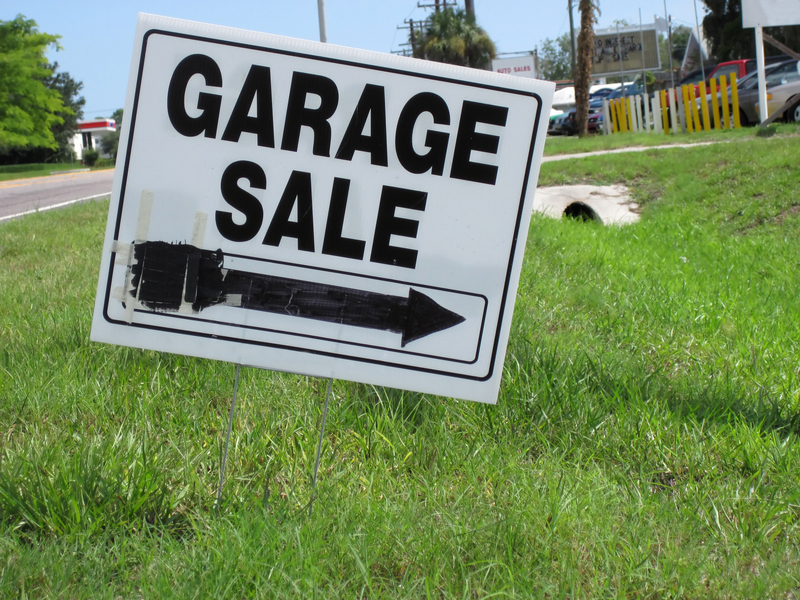10 Green Waste Reduction Tactics for a Sustainable Future
Taking action towards a sustainable future is more crucial now than ever before. With increasing environmental concerns, finding effective waste reduction strategies contributes significantly to a greener planet. Let's explore 10 innovative green waste reduction tactics that not only help conserve resources but also foster a more sustainable way of living.
1. Embrace Composting At Home
Composting is a straightforward method to convert organic waste into nutrient-rich soil. By collecting kitchen scraps and garden refuse, you can create a compost pile or use a compost bin. This not only reduces landfill waste but enriches your garden soil, promoting healthier plant growth.
Benefits of Composting
- Reduces landfill waste
- Improves soil health
- Decreases greenhouse gas emissions
To get started, check out local resources on composting or online guides that offer step-by-step instructions.

2. Opt for Reusable Bags
Reducing plastic waste is essential for environmental sustainability. Switching to reusable bags instead of single-use plastic or paper bags is an easy way to make a significant impact.
Tips for Success:
- Keep a set of reusable bags in your car or by your front door to remember them on your shopping trips.
- Choose bags made from sustainable materials like cotton or recycled fibers.
3. Implement a Zero-Waste Mindset
Adopting a zero-waste lifestyle requires a conscious effort to reduce and reuse items across all aspects of life. This mindset can begin with small changes such as avoiding products with excessive packaging or choosing bulk items to minimize waste.
Steps to a Zero-Waste Lifestyle
- Refuse: Say no to items you don't need.
- Reduce: Declutter and downsize your possessions.
- Reuse: Opt for secondhand before buying new.
- Recycle: Properly separate and dispose of recyclables.
- Rot: Compost organic waste.
4. Support Sustainable Brands
Choose products from companies that prioritize sustainability in their production processes. Supporting these brands means you're endorsing eco-friendly practices and helping reduce overall environmental impact.
Look for certifications on products that indicate sustainable practices, such as Fair Trade, Certified Organic, or Forest Stewardship Council (FSC) certified products.
5. Buy in Bulk
Purchasing groceries and other items in bulk not only reduces packaging waste but can also lead to cost savings. Consider shops and supermarkets that offer bulk sections where you can bring your containers to refill.
Advantages of Bulk Buying:
- Less packaging waste
- Lower costs over time
- Supports a minimalistic lifestyle
6. Upcycle and Repair
Instead of discarding old or broken items, get creative with upcycling. Transform obsolete products into something new and functional. Likewise, repair broken items when possible rather than replacing them.
Upcycling Ideas
- Turn glass bottles into decorative vases.
- Repurpose old t-shirts into cleaning cloths or tote bags.
- Create wall art from scrap materials.
7. Reduce Food Waste
Food waste contributes significantly to greenhouse gas emissions. By shopping more consciously, planning meals, and storing food properly, you can considerably decrease the amount of food your household wastes.
Food Waste Reduction Tips:
- Plan meals for the week to avoid over-purchasing.
- Use leftovers creatively in new dishes.
- Freeze perishable items to prolong their shelf life.
8. Utilize Technology for Sustainability
Technology offers numerous platforms and apps designed to help reduce waste and embrace sustainability more easily. From food-sharing apps to platforms promoting sharing economy, embracing technology can make a significant difference.
Examples of Useful Apps:
- Too Good To Go - helps reduce food waste by connecting users to restaurants offering unsold food at a discount.
- Olio - connects neighbors and local shops to share surplus food.
- Freecycle - promotes giving and getting items for free in your community.

9. Practice Conscious Consumption
Before purchasing an item, consider its lifecycle and environmental impact. By being mindful of consumption habits, you can avoid unnecessary purchases and opt for more sustainable options.
Conscious consumerism encourages supporting local and sustainable businesses rather than fast fashion or non-eco-friendly brands, which plays a major role in reducing overall waste production.
10. Educate and Encourage Others
Spread the message by educating friends, family, and community members about the importance of waste reduction. Awareness and collective efforts can significantly amplify impact.
Ways to Educate:
- Host workshops or informational sessions about sustainability practices.
- Share sustainability tips on social media platforms.
- Volunteer for community clean-up initiatives.
Conclusion: Implementing these green waste reduction tactics will pave the way for a more sustainable future. Each small change contributes to a larger positive impact on the environment, ensuring the planet remains vibrant and healthy for generations to come.